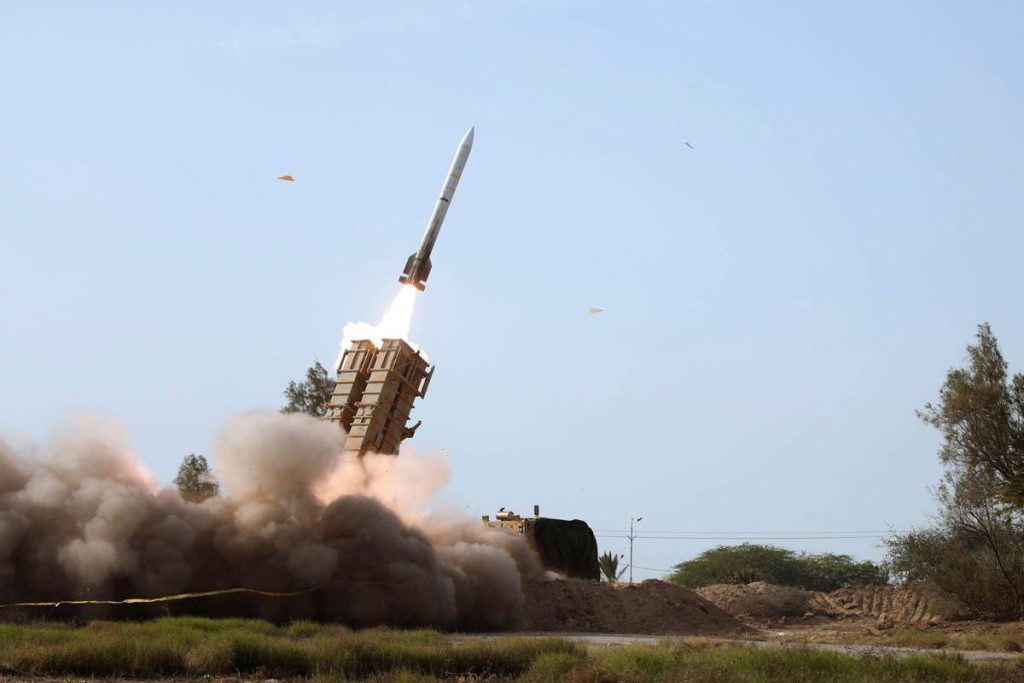By AAMER MADHANI (Associated Press)
The United States and its allies told Iran on Friday that if it goes ahead with a plan to give ballistic missiles to Russia for its war with Ukraine, major Western economies will add more sanctions on Tehran.
For months, the Biden administration has been warning that Russia is trying to get short-range ballistic missiles from Iran as Moscow struggles to refill its decreasing supplies.
The US has not confirmed that missiles have been transferred from Iran to Russia yet. However, US officials are worried by comments from Iranian officials that indicate a deal is about to happen.
One action being considered by the Group of Seven countries is to stop Iran Air, Iran's national air carrier, from flying to Europe, as per a senior Biden administration official. The official, who was not allowed to comment and insisted on staying anonymous, refused to give details about other possible sanctions being considered by the US, apart from saying they would be significant.
The G-7 leaders said in a statement, "If Iran proceeds with providing ballistic missiles or related technology to Russia, we are prepared to respond quickly and together with new and significant measures against Iran."
Iran’s U.N. Mission stated last month that there are no legal restrictions to prevent it from making ballistic missile sales, but it feels morally obliged to avoid weapon transactions during the Russia-Ukraine conflict in order to not worsen the war.
The US and Europe already have strict sanctions on Iran, targeting individuals and restricting the country’s access to trade, financial services, energy, technology, and other sectors. These sanctions are possibly the most extensive and comprehensive set that the US imposes on any country, targeting thousands of individuals and entities.
In January, the Democratic administration mentioned that US intelligence officials had found out that a Russian-Iran deal had not been finalized, but they were worried that Russia’s talks to acquire missiles from Iran were progressing.
According to the White House, in September, Iran hosted Russian Defense Minister Sergei Shoigu to display various ballistic missile systems – a moment that raised US concerns about a potential deal.
The US and other countries have taken steps to prevent the supply, sale, or transfer of Iranian ballistic missile-related items, including giving advice to private companies about Iranian missile procurement practices to ensure they do not unintentionally support Iran’s development efforts.
"We have clearly told Iran not to do it, and this is a topic of significant discussion among several countries," Secretary of State Antony Blinken said during a news conference on Friday in Vienna.
The Biden administration has consistently argued that the Kremlin has become dependent on Iran and North Korea for the weapons it needs to fight its war against Ukraine and has revealed intelligence findings to support this claim.
Russia has obtained and used North Korean ballistic missiles against Ukraine. Ukrainian officials, however, say that North Korean missiles, when used by Russian forces, have often failed to hit their targets.
Russia has obtained a large number of one-way attack drones, as well as equipment related to drone production, from Iran, according to the White House. The Biden administration has also accused Tehran of providing Russia with materials to establish a drone manufacturing plant east of Moscow.
Iran initially denied providing drones to Russia. Tehran later admitted to supplying a small number before Moscow launched its invasion of Ukraine.
—
AP Diplomatic correspondent Matthew Lee contributed from Vienna.









